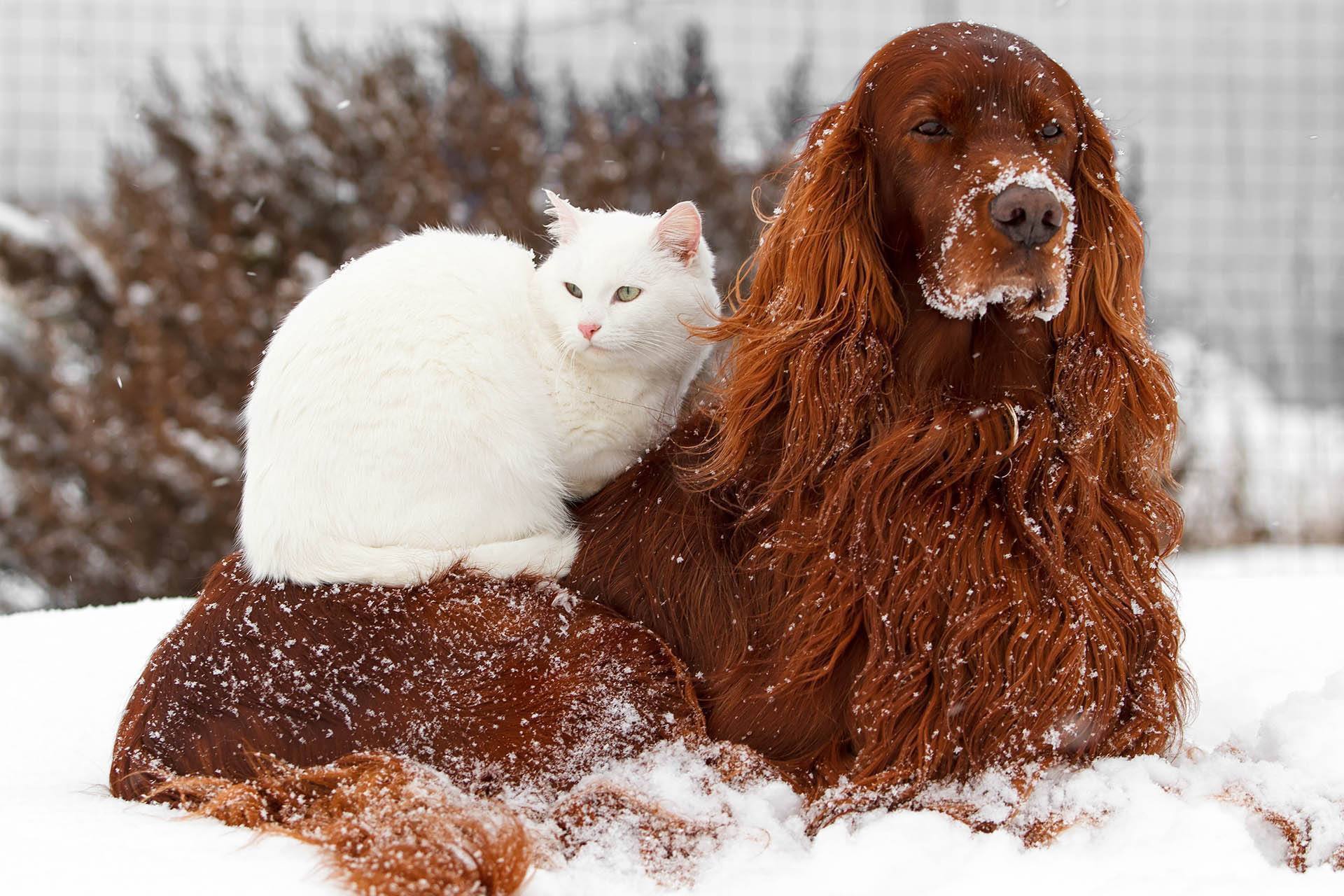December 17, 2016

As the temperature drops outside, it’s very important to keep your pets safe. Recently a lost tabby cat was rescued when a conductor for CN Rail found the stowaway under the engine deck on his train in Alberta. It was almost -40 C outside and one of the train’s engines was frozen solid. When the conductor found the cat, it jumped into his arms and he took it inside to safety.
This story had a happy ending but unfortunately that’s not always the case for pets – especially in Canada’s harsh winters. In this blog there are some tips to give your pets a happy and healthy winter.
Taking Your Pets for a Walk
Does your pet spend a lot of time outside in the backyard or roaming the neighbourhood? You might want to consider keeping them indoors during the winter months, especially if you think they’ll get lost easily. Another reason is if your dog older and has arthritis. The winter weather can be hard on their bones.
Keeping your pet indoors is a good temporary solution, but your need to take your dog for a walk. If your dog has short hair or is a smaller breed, you might consider getting them a jacket. There are many cute designs to choose from and you can get them at any local pet store.
In addition, many sidewalks have melting agents like salt, magnesium, or calcium chloride, which can cause irritation to paws and are even toxic if ingested in large quantities. To prevent salt from injuring your pet’s feet, we recommend using pet boots and shoveling your sidewalk instead of using salt or other ice metlers. If your pet has walked on a salty area, wipe off his or her paws with a towel.
Snow can also get in-between your animals’ toes and can become uncomfortable and perhaps even painful. Again dog boots can help eliminate this problem.
Icy patches can be dangerous to your animal. Try to avoid these patches if possible, and avoid playing close to them. Thin ice on lakes can be hazardous for people and animals. Kepp your pet away from lakes or other frozen bodies of water.
Nutrition
Because it takes more energy to stay warm when its cold outside, animals will need to eat more during the winter. Also it’s vital to keep your pet’s water fresh to maintain your pet’s health. Keep an extra eye on the bowel and make sure their food bowl is full.
Your pets may also have different dietary needs in the winter. They generally conserve energy by sleeping more in the winter. Dogs and cats also exercise much less when they go outside so they may need to adjust the amount of food accordingly.
Proper Outdoor Housing
Your dog obviously needs a warm, dry home, especially if they are going to be spending outdoor. We don’t recommend you keeping your pet in a doghouse during winter but if you do, make sure it’s well insulated and large enough for your dog to stand up and turn around comfortably. For additional warmth blankets and bedding material, blankets are ideal since they’re easy to remove and wash for a clean and dry environment all winter long.
Anti-Freeze and Other Chemicals
As temperatures dip below zero you’ll probably use antifreeze in your car. You’ll want to keep it out of your pet’s reach. Antifreeze is incredibly deadly if ingested. It has a sweet taste that attracts pets of all kinds. Even a tiny amount causes fatal kidney toxicity. So when tuning up your car, make sure your pet doesn’t have access to the antifreeze container and clean up any spills immediately. If you think your pet has consumed antifreeze contact your veterinarian immediately.
If you have any doubts about what to do with your pet in the cold, it’s best to be cautious and keep them indoors. Pay attention to your animal, especially if they are older or younger. If anything should happen be sure to contact us immediately. Click HERE to book an appointment with us.